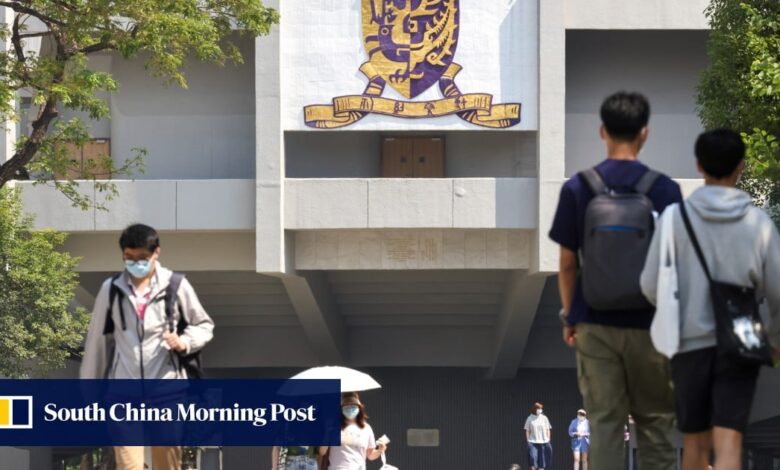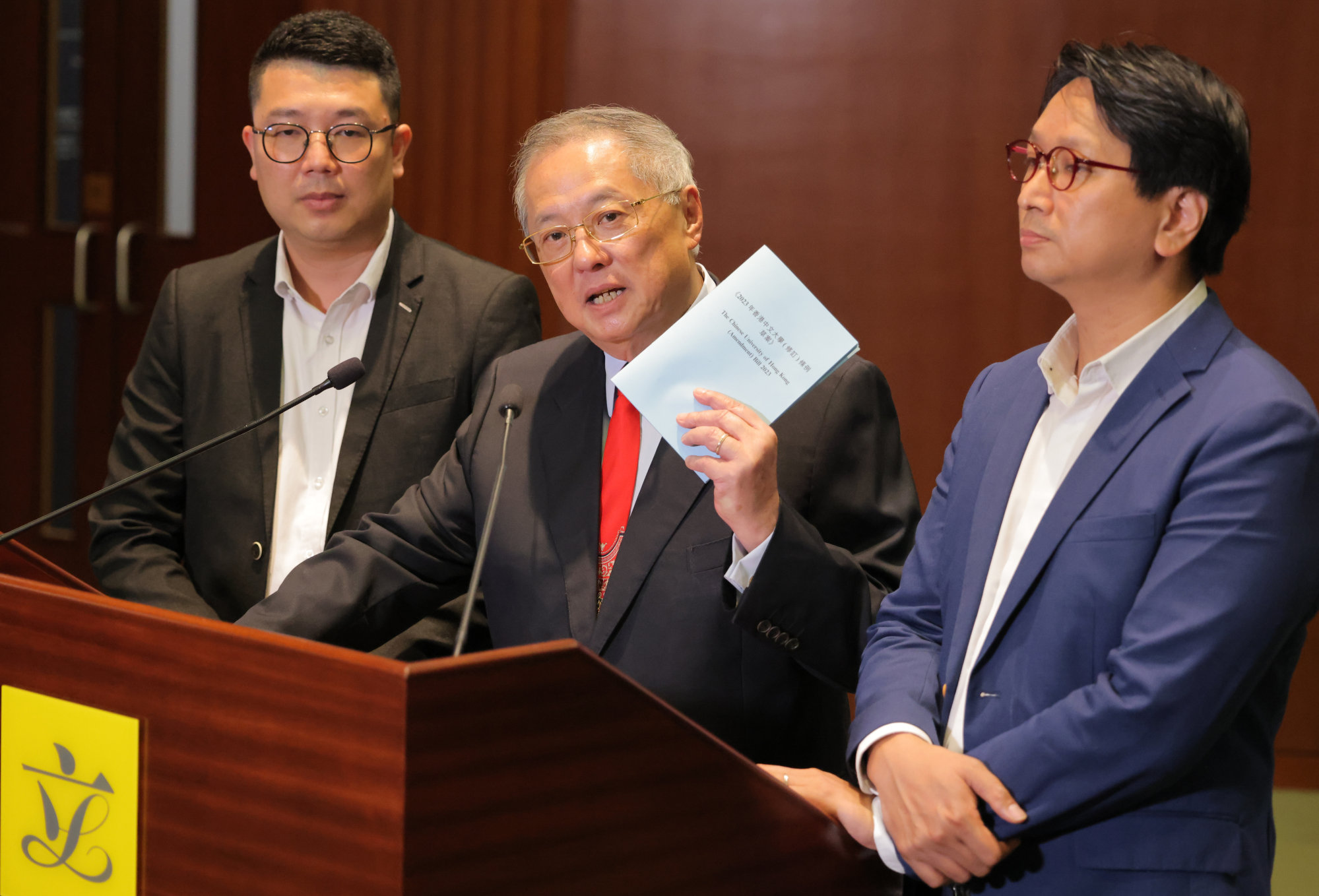Hong Kong lawmakers pass controversial bill reforming Chinese University’s governing council

[ad_1]
Lawmaker Edward Lau Kwok-fan, who along with legislators Bill Tang Ka-piu and Tommy Cheung Yu-yan introduced the private bill last December, on Wednesday said the restructuring would not weaken the university’s autonomy, but rather strengthen it through increased public scrutiny.
“Many of the external council members, such as alumni like myself and supervisors recommended by some other institutes … all hope Chinese University can develop well, so I don’t think this reorganisation will weaken its autonomy,” he said in a televised interview.

The bill to amend the Chinese University of Hong Kong Ordinance passed on its third reading with 76 votes in favour, no objections and three abstentions.
Some of the biggest changes included cutting the size of the council from 55 members to 34, lowering its proportion of academic councillors and increasing the voting threshold for approving the appointment of the president who also serves as vice-chancellor.
The council called the revamp an “important step” to improve governance, saying: “The council thanks all members for their support, advice and contributions to the council and the university community more broadly.
“Following the bill’s gazettal and the commencement of the reorganised council with new composition, we will work diligently to finalise methods to admit other categories of members as soon as practicable.”
The bill will be gazetted either this Friday or the next, according to Cheung, with Lau adding the university would put the changes into effect immediately.
Hong Kong lawmaker wants university to cover costs of private bid to revamp council
Hong Kong lawmaker wants university to cover costs of private bid to revamp council
The proposal divided the university’s alumni, prompting some council members to launch an online petition calling for it to be scrapped, which collected about 1,600 signatories in nine days. Its backers noted the council had already endorsed amendments to the university’s ordinance and argued the private members’ bill ignored the opinion of stakeholders.
But lawmaker Cheung, of the catering functional constituency, on Wednesday said the reorganisation was “belated” and could rein in university management.
“The Chinese University’s governance was completely out of touch with its remarkable academic achievements in recent years,” he said. “Governance issues, in turn, became a stumbling block for the university to move forward, resulting in numerous problems.”
Reforms push for university in Hong Kong after ‘appalling’ protest handling
Reforms push for university in Hong Kong after ‘appalling’ protest handling
The term of the current council ended on Tuesday and an ad hoc transitional one with 13 members would be formed, with the majority of its members appointed by Chief Executive John Lee Ka-chiu, Cheung and Lau explained. The three lawmakers were on the previous council, as representatives of the Legislative Council, and would serve on the one about to be created.
Lau said the reorganisation was only step one in improving the university’s governance and he, Cheung and Tang would follow up on other governance concerns.
Three lawmakers who abstained from the voting were Tik Chi-yuen of the social welfare sector, Gary Zhang Xinyu of New Prospect for Hong Kong and Kenneth Lau Ip-keung of the Business and Professionals Alliance for Hong Kong.
Tik said he abstained from the vote because the bill failed to gain consensus from council members, alumni, teachers and students.
He said he was concerned that the revamp would create uncertainties in the direction of the university’s development because of distrust the bill might create between its backers and opponents.
Zhang said he disagreed with how differences were handled during the readings of the bill, although he did not have a strong opinion on the reorganisation plan itself.
Kenneth Lau refused to say why he abstained from the vote.
[ad_2]
Source link





